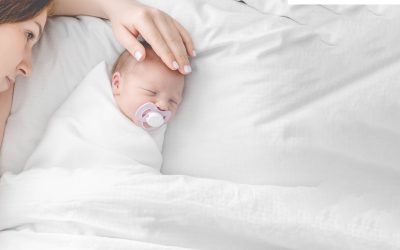Baby Acne .. The Battle with Babies and Acne
So what’s “Baby Acne”?
Well, I am the mom to three little boys. I haven’t quite reached the teenage face and back acne stage and there is no acne medication in our house yet, but I sure have dealt with baby acne!
My kids came out with blotchy, scratches faces, which rapidly looked clear and gorgeous, for a week or two. Then the pimples came, covering their tiny, perfect faces. My boys each had the yuckiest baby acne – so gross to me that we have only a handful of photos of them at this age. As fast as it arrived, the baby acne faded away, leaving perfect, clear skin behind. So far, so good, till those hormones start to change.
What is baby acne?
Baby acne looks similar to teenage acne. There are white and red bumps, or pimples, often surrounded by red, irritated skin. Though some babies are born with it, most don’t develop acne till week 3 or 4.
Baby acne most commonly appears on the cheeks, chin and forehead. It becomes more red when irritated by saliva, milk or rubbing against fabrics.
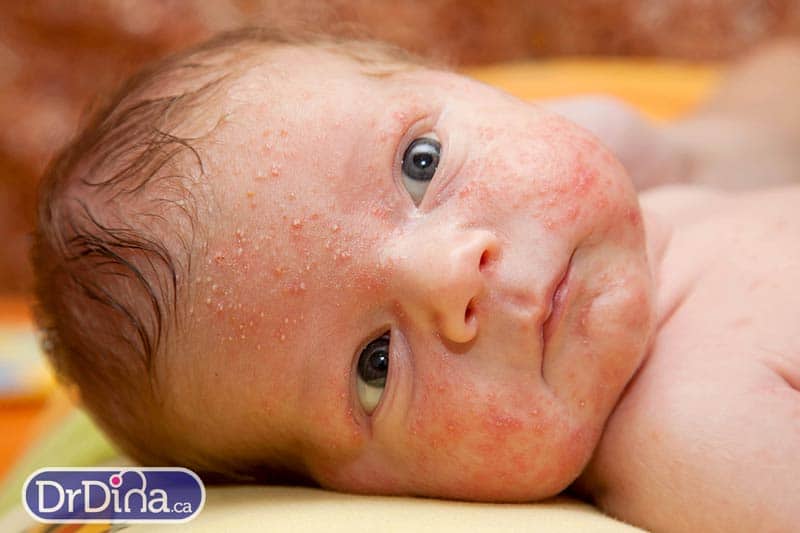
There are other white bumps on your child’s nose that may not be acne. Milia are tiny , white bumps that are present at birth and disappear within a few weeks.
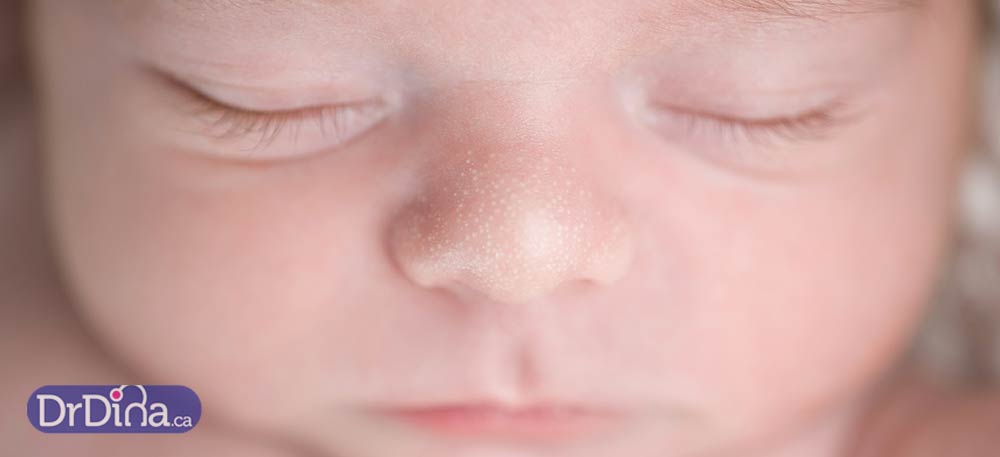
What causes baby acne?
We aren’t sure, but surmise that baby acne is caused by hormones baby receives from mom during pregnancy. As these decrease over time, so does acne.
How to get rid of baby acne
- Do not use over the counter acne medications
- Don’t scrub
- Don’t put lotions on your child’s face, this may make it worse.
- Do wash your baby’s face with some water and mild soap, then pat dry gently.
- Wait it out – baby acne typically fades away by 6 weeks of age.
- Ask your doc if it is severe or persistent.
What are other types of acne?
All acne starts as plugged up pores.

(click to enlarge)
Blackheads and whiteheads
This is the acne most of us have experienced: pores that are blocked with dead skin cell, bacteria and oil. If the pore stays open, it’s a blackhead. If the blocked pore closes, it’s a whitehead. These are the most easily treated acne, and over the counter acne medication can often do the trick.
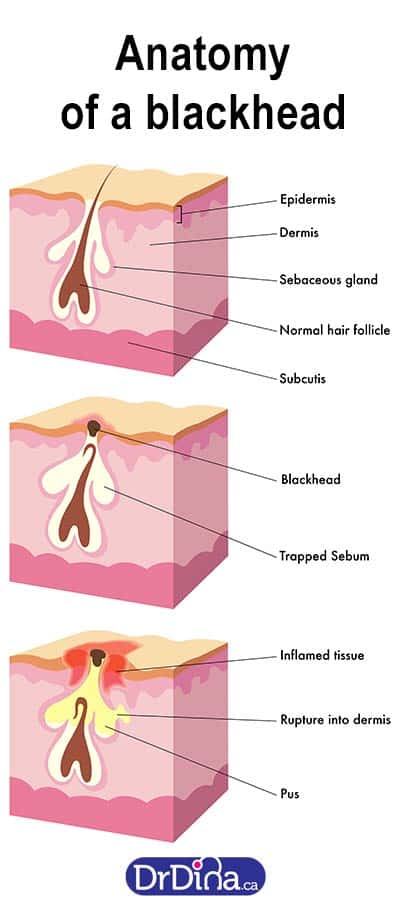
Pustules and papules
When the pores get irritates, the walls can break. This leads to larger pimples called papules and pustules. These are hard when you touch them and can feel like sandpaper when grouped together. Pustules tend to be yellow in color, as liquid pus is within (yuck!).
This type of acne may respond to over the counter acne medication, but may be more stubborn and require a trip to your doctor or dermatologist for prescription medication. Topical (cream or gel) antibiotic mixtures often do the trick.
Nodular or cystic acne
If the acne gets even more irritated then deep, painful nodules or cysts develop. Back acne can be cystic as well. Your doctor can treat these pimples more aggressively. Oral antibiotics or treatments like isotretinoin (Accutane) can help with the advice from your doc.
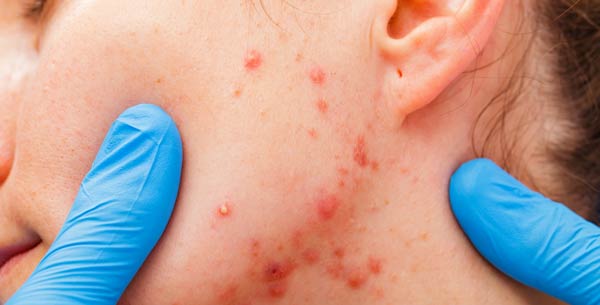
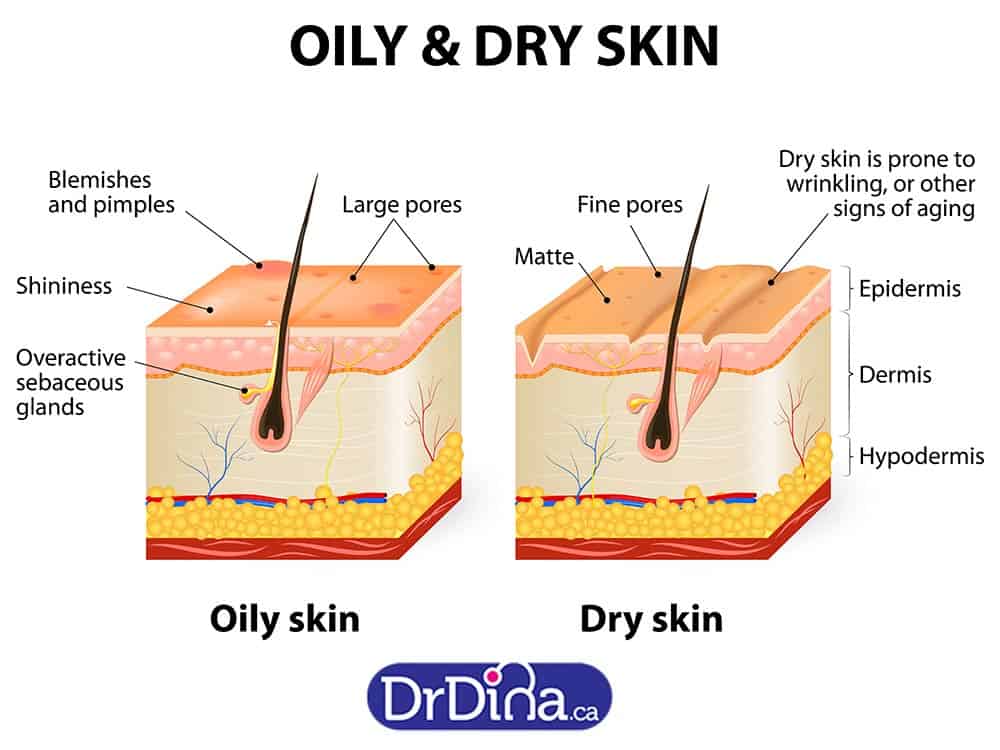
When in doubt, see your doctor.
Most types of acne respond quickly and easily to acne medication, so you and your children can have beautiful skin in no time!
Quick Tips:
- Don’t scrub baby acne or use medications on them
- Baby acne goes away on its own
- Whiteheads and blackheads are the easiest acne to treat.
- Pustules or cystic acne requires a trip to the doctor.
Dina is a wife, mother of 4, and adrenaline junky. She loves to share children’s health information from her professional and personal experience. More About Dr Dina.


